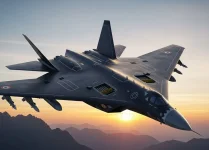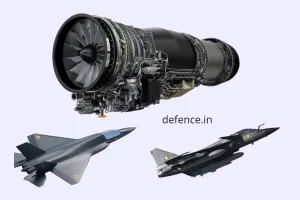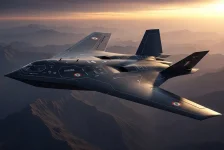- Views: 3K
- Replies: 14
Retired Air Vice Marshal Suresh Singh has strongly advocated for India to develop the engine for its upcoming Advanced Medium Combat Aircraft (AMCA) entirely domestically, dismissing the possibility of meaningful collaboration with foreign companies.
He argues that crucial jet engine technology will not be shared by international partners, making self-reliance the only viable path forward for the planned 120kN thrust engine.
Speaking with conviction, AVM Singh asserted that expecting foreign entities to co-design or transfer core technology is unrealistic. "Nobody in the world is going to co-design, co-develop, or give technology to you," he stated, emphasizing that global aerospace leaders have invested heavily in their proprietary technologies and are unlikely to share them in a way that creates competition or reduces their revenue streams.
This perspective contrasts with recent statements from DRDO officials indicating ongoing discussions with foreign OEMs like GE, Safran, and Rolls-Royce for potential co-development partnerships to reduce risks and development time for the AMCA engine, which is targeted for the AMCA Mk2 variant.
AVM Singh drew parallels with historical jet engine development to illustrate that determined indigenous efforts can succeed. He recalled Frank Whittle's initial struggles in Britain versus Hans von Ohain's state-backed success in Germany, along with instances of reverse-engineering by the USA and Russia, suggesting that technological breakthroughs are achievable through national will and resources.
He acknowledged that engine development is inherently complex, citing ongoing issues even with modern engines like those from Pratt & Whitney, but noted that advanced simulation tools available today can significantly speed up the process compared to the past.
Addressing the history of India's own Gas Turbine Research Establishment (GTRE) and its decades-long work on the Kaveri engine program – which faced significant challenges including not meeting thrust requirements, delays, and cost overruns, ultimately being delinked from the Tejas fighter program – Singh suggested a new direction.
While acknowledging GTRE's efforts, he proposed that the organisation should transition into a leadership role focused on R&D and technology integration, rather than sole development.
His proposed solution involves establishing a government-funded "Mission Aero Engine." This initiative would see a consortium of India's leading private sector companies take charge of developing the 120kN engine, suitable not only for the AMCA but potentially adaptable for other military and civilian aircraft.
GTRE would act as the integrator and technical authority. Singh suggested breaking down the engine development into manageable components, with major systems handled by large firms and sub-component R&D and testing delegated to smaller enterprises.
Citing international collaborative models like the V2500 and EJ200 engines, AVM Singh recommended a structure with a fixed lead integrator and partners sharing risks and revenue.
Crucially, he insisted this mission must receive dedicated funding from the Government of India and be overseen directly by the Prime Minister’s Office to ensure focus and accountability, similar to the successful ISRO model.
Current government policies increasingly favour private sector participation in defence manufacturing, aligning with the 'Atmanirbhar Bharat' (self-reliant India) initiative and setting ambitious targets for domestic production and exports.
The retired Air Vice Marshal stressed the urgency, stating India cannot afford another multi-decade wait for a homegrown engine. He urged GTRE, the Defence Research and Development Organisation (DRDO), and the Ministry of Defence to adopt this private-sector-led consortium approach.
"If it can be developed in one part of the globe, it can be developed in India," he affirmed.
Concluding his address, AVM Singh made a direct appeal to GTRE and DRDO leadership for decisive action, cautioning that anything less than complete technological mastery is inadequate for critical systems like jet engines, where even minor failures can have severe consequences.
He declared it is time for Indian industry, supported by focused government funding and oversight, to step up and deliver this vital capability for the nation's defence.
The discussion also noted the need to harness industry capabilities and address budgeting and timelines effectively, reinforcing Singh's call for a nationally driven, collaborative effort towards achieving self-reliance in advanced aero engine technology.



